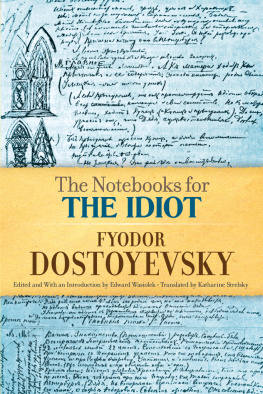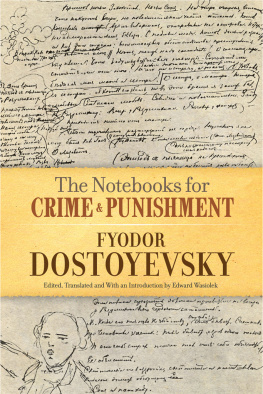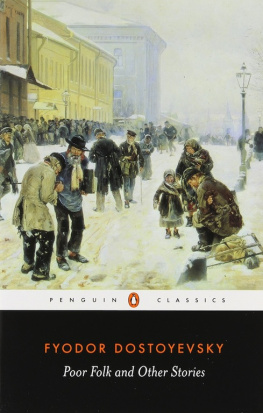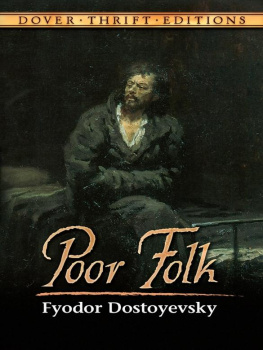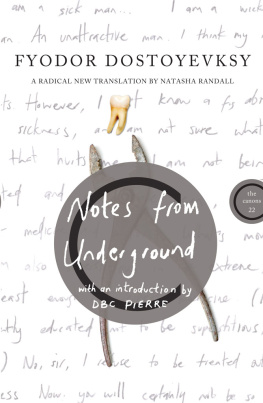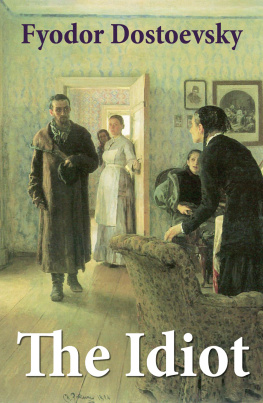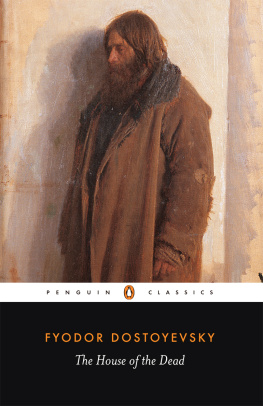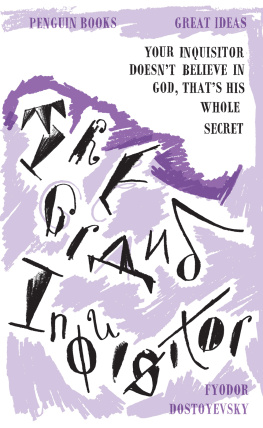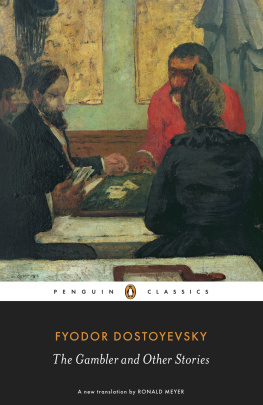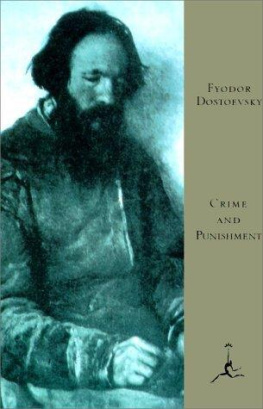Dostoyevsky Fyodor - The Notebooks for The Idiot
Here you can read online Dostoyevsky Fyodor - The Notebooks for The Idiot full text of the book (entire story) in english for free. Download pdf and epub, get meaning, cover and reviews about this ebook. year: 2017, publisher: Dover Publications, genre: Detective and thriller. Description of the work, (preface) as well as reviews are available. Best literature library LitArk.com created for fans of good reading and offers a wide selection of genres:
Romance novel
Science fiction
Adventure
Detective
Science
History
Home and family
Prose
Art
Politics
Computer
Non-fiction
Religion
Business
Children
Humor
Choose a favorite category and find really read worthwhile books. Enjoy immersion in the world of imagination, feel the emotions of the characters or learn something new for yourself, make an fascinating discovery.
- Book:The Notebooks for The Idiot
- Author:
- Publisher:Dover Publications
- Genre:
- Year:2017
- Rating:4 / 5
- Favourites:Add to favourites
- Your mark:
- 80
- 1
- 2
- 3
- 4
- 5
The Notebooks for The Idiot: summary, description and annotation
We offer to read an annotation, description, summary or preface (depends on what the author of the book "The Notebooks for The Idiot" wrote himself). If you haven't found the necessary information about the book — write in the comments, we will try to find it.
The Notebooks for The Idiot — read online for free the complete book (whole text) full work
Below is the text of the book, divided by pages. System saving the place of the last page read, allows you to conveniently read the book "The Notebooks for The Idiot" online for free, without having to search again every time where you left off. Put a bookmark, and you can go to the page where you finished reading at any time.
Font size:
Interval:
Bookmark:
FYODOR
DOSTOYEVSKY
Edited and With an Introduction by
Edward Wasiolek
Translated by Katharine Strelsky
DOVER PUBLICATIONS, INC.
Mineola, New York
Copyright
Copyright 1967 by The University of Chicago
All rights reserved.
Bibliographical Note
This Dover edition, first published in 2017, is an unabridged republication of the work originally published as Fyodor Dostoevsky: The Notebooks for The Idiot by the University of Chicago Press, Chicago, in 1967. For this edition, we have retained the spelling of the authors name as Dostoevsky as it appears in the 1967 translation. The 1967 translation is based upon the Russian edition of Dostoevskys notebooks: Iz arkhiva F. M. Dostoevskogo: Idiot, Neizdannye materialy, edited by N. N. Sakulin and N. F. Belchikov (Moscow and Leningrad, 1931).
International Standard Book Number
ISBN-13: 978-0-486-81414-8
ISBN-10: 0-486-81414-9
Manufactured in the United States by LSC Communications
81414901 2017
www.doverpublications.com
The illustrations included in this edition of Dostoevskys Notebooks for The Idiot are facsimiles of original pages of the notebooks.
Of all the novels, The Idiot came hardest for Dostoevsky. It was written abroadin Geneva, Vevey, Milan, Florencein cold flats, poverty, sickness, personal tragedy, homesickness, despair, and in hope. Threatened by creditors with imprisonment, and suffering from bad health, Dostoevsky left Russia in April, 1867, in hope of repairing both health and fortune abroad; but he found, as always, what he was running away from: the epileptic fits became more frequent and the poverty sharper. Dostoevsky and his new wife Anna Grigorievna subsisted on advances, loans, and pawn tickets, in countries he found spiritually dead and among people he detested. Oh, Sonetchka! he wrote to his niece, If you only knew how hard it is to be a writer, to carry this burden! I know for sure that if I had two or three secure years for this novel, as Turgenev, Goncharov, and Tolstoy have, I would write a work that they would talk about for a hundred years! Im not at all bragging. You know me well enough to know that I dont talk idly. The idea I have is so good and so pregnant with meaning that I worship it. And yet what will come of it? I know beforehand. Ill work on it for eight or nine months, and Ill make a mess of it. Two or three years are needed for something of this kind. But he did write a work that has lasted for a hundred years and will last a hundred more. He wrote it between fits of gambling and fits of epilepsy, when there was no money and very little hope. He wrote it because the novel itself was the hope, the redeeming act, the atonement for the crushing guilt he felt for his self-destructive passions.
Dostoevsky and his young wife were no sooner in Europein Dresden and Baden-Badenthan Dostoevsky was passionately trying to wrest fortune from the gaming tables, as he had tried futilely to do two years before during a trip to Europe. His unmurmuring and uncomplaining wife patiently recorded for posterity the abjections to which Dostoevsky subjected her, and himself as well. When there was no money Dostoevsky conducted a systematic depredation of their household goods and personal effects. Anna Grigorievna had already sold most of what she ownedas well as liquidated her dowryto make the European trip possible. Now Dostoevsky demanded her clothes, kitchen utensils, earrings, even her wedding ring, and gave her in returnbut not in mockeryhis tears and his endless avowals of guilt. The fits of passion were always followed by fits of repentance in which Dostoevsky would weep audibly, kiss his wifes feet, hands, breasts. The novel would then appear as the answer to everything. After losing in November, 1867, at Saxon-les-Bains (a few months after beginning The Idiot), he wrote to his wife: Only the novel now, only the novel will save us, if you only knew how I was counting on it. Be sure that I will make it come off and earn your respect. I will never, never play again. I was in the same fix in 1865. I couldnt have been in a worse situation then, but my work got me out of it. I take up my work with hope and love, and you will see the results in two years. He repeated this drama many times, but in 1871 he wrote to his wife, inevitably after a crushing loss: The foul fantasy which has tortured me for ten years has disappeared. For ten years (or rather since the death of my brother, when I was suddenly crushed with debts), I have been dreaming of making a killing. I dreamed seriously, passionately. Now all that is finished! Im going to think about the things I have to do now, and not spend whole nights thinking of gambling, as I have been doing. He was never to gamble again.
Despite the attractions of its gaming tables and museumshe saw Claude Lorrains Acis and Galatea in Dresden and Hans Holbeins Christ in the Tomb in BasleDostoevsky could not abide Germans or Germany. He expressed this aversion to things German in a bristling attack on the hopeless inferiority of Germans to the common people of Russia in a brief meeting with Turgenev in the summer of 1867 in Baden. The exchange was polite and cold enough to keep the two men unreconciled until the occasion of Dostoevskys triumphant Pushkin speech in 1880, a short time before his death.
Settled in Switzerland, the spiritual quagmire of Germany behind him, Dostoevsky did notpredictablyfind things any different or any better. The Swiss climate was intolerable, the Swiss themselves petty and dirty, the Russian emigrants incomprehensible, and the scenery panoramic and trivial. He wrote to Maykov in June, 1868: The scene from Lake Geneva is, of course, magnificent; from Vevey it is better than from Montreux and Chillon. But outside of that panorama (and to be sure a few places where one can walk, which are not to be had in Geneva), the rest is really disgusting; one has to pay too dearly for the panorama alone. And to his niece: Geneva on the banks of Lake Geneva. The lake is fantastic, the shoreline picturesque, but Geneva itself is boring beyond belief. This is the ancient Protestant city, and furthermore filled with drunks. Life abroad, he wrote her, was worse than exile to Siberia. He was too far away, and he was not a Turgenev or a Gogol who could see Russia better for the distance. He had to breathe Russian air. To a friend he wrote: I grow dull here, small, foreign to Russia. Theres no Russian air here, no people. I cant understand the Russian emigrants here at all. Its mad. And Geneva was full of Russian emigrants.
Herzen, Bakunin, Ogarev, and many other distinguished Russian intellectuals had settled in Geneva, but this was cheerless comfort for Dostoevsky, who looked with disapprobation at Russian emigrants and expressed more than once an inability to understand how any Russian could voluntarily live in Europe. Geneva in 1867 was also a center for radical and progressive activity, a phenomenon that Dostoevsky followed closely with some foreboding and much disgust. He listened to the speeches of Bakunin and others at the meetings of the International Peace Congress and recorded in his letters dismay at the recommendations of the congress for the abolition of monarchies, Christianity, and capital. The rhetoric was familiarhis involvement in the Petrashevsky circle twenty years before came to mindand only fire and the sword had been added to false ideas.
Devoured by a passion for gambling and then by guilt, humiliated by poverty, driven by deadlines, choking on foreign air, alarmed and disgusted by political currents, forced to move restlessly from apartment to apartment with a pregnant wife, and forced to bear the shock of the death of his three-month-old daughterthese comprise Dostoevskys physical and spiritual environment during the eighteen months
Font size:
Interval:
Bookmark:
Similar books «The Notebooks for The Idiot»
Look at similar books to The Notebooks for The Idiot. We have selected literature similar in name and meaning in the hope of providing readers with more options to find new, interesting, not yet read works.
Discussion, reviews of the book The Notebooks for The Idiot and just readers' own opinions. Leave your comments, write what you think about the work, its meaning or the main characters. Specify what exactly you liked and what you didn't like, and why you think so.

